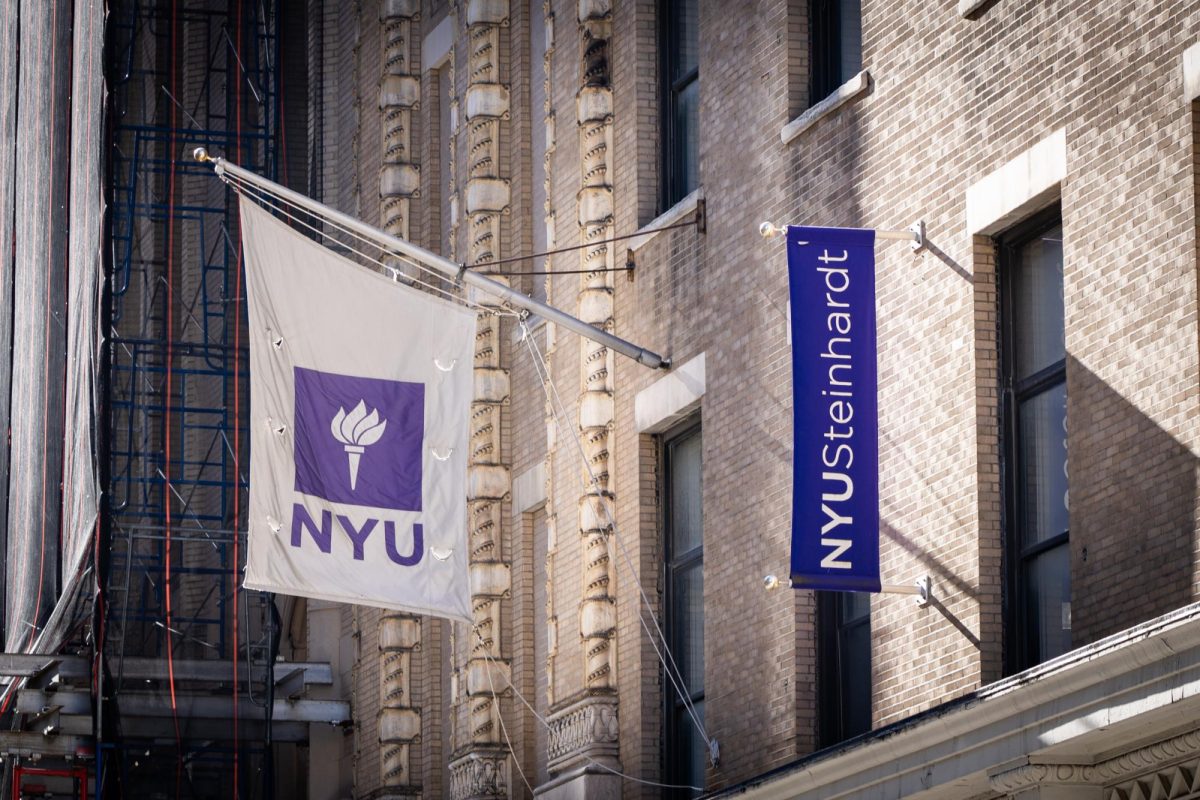Guest essays reflect opinions from writers beyond WSN. If you’d like to submit a guest essay for consideration, please email [email protected].
Imagine juggling classes, assignments and a part-time job while worrying about where your next meal will come from. For far too many students at NYU, this isn’t just a hypothetical scenario — it’s a harsh reality. The USDA defines food insecurity as “limited or uncertain availability of nutritionally adequate and safe foods, or limited or uncertain ability to acquire acceptable foods in socially acceptable ways.” In 2018, the Being@NYU survey found that more than 20% of NYU students face some degree of financial difficulty affording food. Moreover, based on a survey in 2019, 41% of the student respondents in a study conducted at Steinhardt met the criteria for food insecurity at NYU.
In my three years as a part of the Steinhardt School of Culture, Education, and Human Development’s Undergraduate Student Government, I have increasingly heard from students about the struggles they face to afford meals and the lack of support from NYU. Existing programs, such as Courtesy Meals or Swipe it Forward, are inadequate to tackle food insecurity. The courtesy meals program provides 75 Dining Dollars as a short-term emergency resource for students facing an unexpected financial disruption and cannot afford meals or groceries. However, 75 Dining Dollars is only enough to sustain students for two to four days maximum, considering the cost of food at NYU dining halls. The program is not adequate because it does not account for students who face food insecurity on a longer-term basis. Students consistently use the program, which has increased exponentially since the spring of 2019, yet, the university only allows three requests per academic year. The amount barely covers those students who face “short-term” food insecurity. From what we’ve heard from students, this is part of why they are aversive to utilizing this program. It can be very invasive and traumatizing for students to constantly explain and convince the administration that they do not have the financial means to feed themselves.
The Swipe it Forward program has its own challenges. It relies solely on student donations, and there have been times in the past when the swipe balance has been zero, so meal swipe redemption has been higher than meal swipe donation. Secondly, the redemption limit per student has been set to one use per week as of fall 2023, which is highly restrictive. This is not enough for any student to rely on. Clearly, this basic need is not being met, and students increasingly require immediate support in this regard because NYU strongly lacks a practical and direct institutional solution to food insecurity. We cannot continue to rely on a patchwork system to address campus food insecurity.
Thus, this semester I am excited to announce that the USG will be launching a food pantry for all Steinhardt students on March 6, 2024. While we have always wanted to tackle food insecurity concretely, we have lacked a source of funding or financial support to do the same. Last semester, we applied to the Student Government Assembly’s Initiative Fund and secured funding for our food pantry. The pantry will be open every week on Tuesdays from 2-5 p.m. and Wednesdays from 3-6 p.m. to begin with and will operate out of the third floor Pless Hall lounge. Our goal is to provide nutritious, good quality and culturally diverse food, along with household items like detergent and menstrual products given the growing costs of living, particularly in New York City. Students will also be able to provide feedback on food pantry items through a form that includes questions about dietary restrictions and allergies so that we can accommodate all students and adapt it to the needs of our community. It will be entirely student-run and managed by USG’s e-board. Our e-board has been working tirelessly to ensure this is a success, and each member will be spending time every week to volunteer with the operations of the food pantry. As an organization, we are deeply committed to addressing basic needs and insecurity and, thus, hope that this is a reliable resource for students. Studies show that access to food pantries improves students’ health, reduces depressive symptoms and promotes better sleep.
While we recognize that we will not be able to solve food insecurity at NYU through a food pantry, we are hoping this becomes an accessible and helpful resource that provides students with support so they can focus more of their time and energy on being a student. However, our goal extends beyond immediate assistance. We’re also prioritizing collecting data on pantry usage to identify trends and advocate for long-term solutions. This initiative is particularly critical for marginalized communities that are disproportionately impacted by food insecurity. We are hoping to present this data to university administrators and Steinhardt so we can work on a long-term, sustainable solution. While the causes of food insecurity are complex, one thing remains clear: everyone deserves access to food, and we’re committed to making that right a reality for our fellow Steinhardt students. Given that one of President Linda Mills’ strategic goals includes increasing our graduation rate, understanding how basic needs insecurity ties into students dropping out or transferring would be an essential aspect for NYU to consider and allocate much-needed resources to. Thus, although we believe this is a significant step forward in addressing a critical need, these challenges must be systematically addressed with multilevel interventions that include a structural change at NYU to provide greater administrative support to basic security needs.
WSN’s Opinion section strives to publish ideas worth discussing. The views presented in the Opinion section are solely the views of the writer.
Contact Tanisha Thakkar at [email protected].

























































































































































